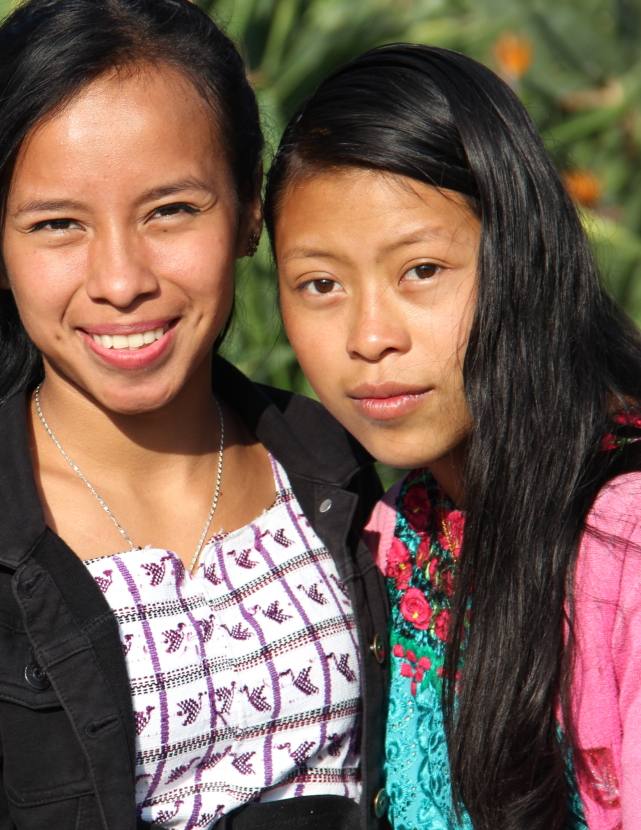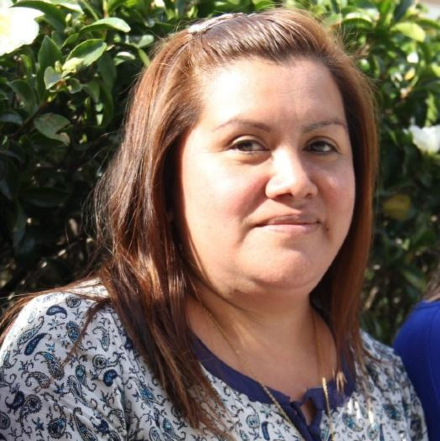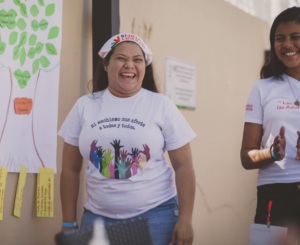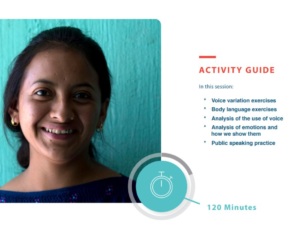Empowering Girls and Young Women in Guatemala and Honduras
Program
Highlights

In Guatemala and Honduras, PHI’s Rise Up program enables girls and young women to raise their voices, advocate for improved policies and programs, and drive sustainable change to transform their lives, families and communities.
20K girls and young women with sexual and reproductive health info
156 girls and young women with new leadership skills
-
Focus Areas
Global Health, Women, Youth & Children -
Expertise
Leadership Development
PHI’s Rise Up program enables girls and young women around the world to raise their voices, advocate for improved policies and programs, and drive sustainable change to transform their lives, families and communities. The program invests in the next generation of leaders to ensure that girls’ priorities are incorporated into laws, policies, and programs at the community, national, and global levels.
In Guatemala, in 2019-20 Rise Up worked to strengthen the capacity of girl leaders in the Quetzaltenango Girl Network, promoting the rights of adolescent girls. They provided advocacy training and leadership development to build public, political, and legal support for girls’ rights and well being. During the COVID-19 pandemic, this work became especially crucial, as girls and young women were severely impacted by the virus and associated social disruptions.

COVID-19 is affecting girls, adolescents, and women in Guatemala in very drastic ways, putting their mental and physical health at risk. These impacts motivated Red Departamental Las Niñas Lideran in Quetzaltenango, Guatemala, to launch a campaign to prevent violence, taking advantage of technology, and being creative to generate ideas in these moments of crisis.Juany Garcia Perez, Guatemala Country Coordinator, Rise Up
 In Jalapa, Guatemala, a city of nearly 350,000 people, girl-led advocacy made progress toward approval and implementation of citywide adoption of the National Plan for the Prevention of Pregnancy in Adolescents (PLANEA). The policy will improve access to sexual and reproductive health information, with the potential to improve the lives of more than 10,000 girls. Similar advocacy by Rise Up networks of girls in La Ceiba, a city of 200,000 also made headway towards a citywide policy change for a teenage pregnancy prevention strategy. This will include comprehensive sexual education programs in primary schools, to reduce teen pregnancy and provide services and information to 10,000 adolescent girls.
In Jalapa, Guatemala, a city of nearly 350,000 people, girl-led advocacy made progress toward approval and implementation of citywide adoption of the National Plan for the Prevention of Pregnancy in Adolescents (PLANEA). The policy will improve access to sexual and reproductive health information, with the potential to improve the lives of more than 10,000 girls. Similar advocacy by Rise Up networks of girls in La Ceiba, a city of 200,000 also made headway towards a citywide policy change for a teenage pregnancy prevention strategy. This will include comprehensive sexual education programs in primary schools, to reduce teen pregnancy and provide services and information to 10,000 adolescent girls.
In Honduras, twenty Rise Up youth leaders and ten adult allies trained 156 girls and youth leaders in advocacy and leadership skills, to gain strategies to improve their lives. As one seventeen-year-old Honduran girl said,
“I not only learned, I made friends, and we are dreaming together. Now I know that I am not alone and that Honduras has extraordinary girls like me who are going to transform their realities.”
 To inform their global work, Rise Up partnered with Girl Up to produce the Girls’ Voices curriculum, a first of its kind tool focusing on girl-led advocacy for ages 12-19. The 10-week curriculum aims to help develop girl leaders who are empowered to create solutions and identify how to effectively influence decisions in their community and is designed to be implemented in low resource settings. Sessions are based on experiential learning and help girls jump-start advocacy ideas, build trust and relationships, develop messages and stories, and create action plans.
To inform their global work, Rise Up partnered with Girl Up to produce the Girls’ Voices curriculum, a first of its kind tool focusing on girl-led advocacy for ages 12-19. The 10-week curriculum aims to help develop girl leaders who are empowered to create solutions and identify how to effectively influence decisions in their community and is designed to be implemented in low resource settings. Sessions are based on experiential learning and help girls jump-start advocacy ideas, build trust and relationships, develop messages and stories, and create action plans.
Work With Us
You change the world. We do the rest. Explore fiscal sponsorship at PHI.
Support Us
Together, we can accelerate our response to public health’s most critical issues.
Find Employment
Begin your career at the Public Health Institute.
